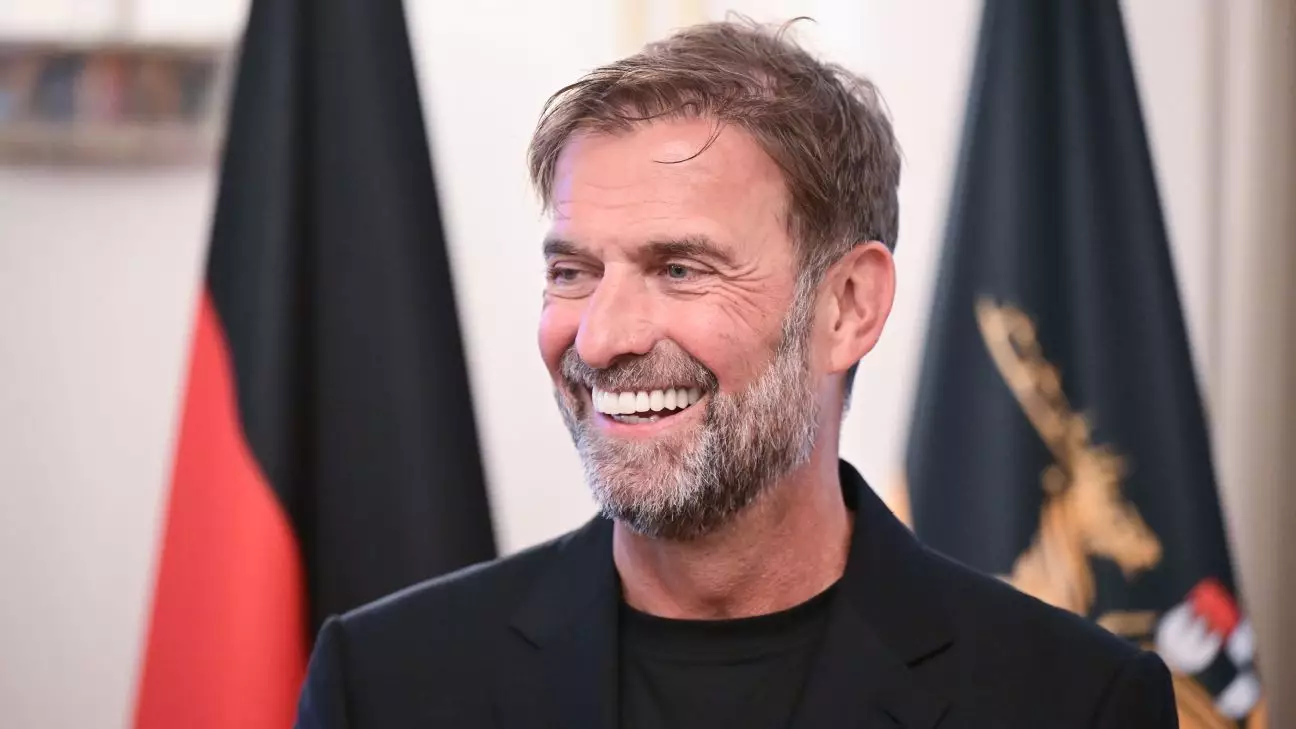The world of football is perpetually in flux, characterized by shifts in loyalty, ethos, and branding. Notably, Jürgen Klopp’s recent acceptance of a position within the Red Bull football conglomerate has stirred mixed emotions in Germany, providing ample fodder for discussion amongst fans, analysts, and former players. These reactions appear to reflect a deeper cultural tension in German football regarding commercialization and tradition, illustrating an apparent divide between the acceptance of modern business models in sport and the reverence for legacy clubs steeped in historical significance.
Although Jürgen Klopp has spent the last decade managing prestigious clubs abroad, particularly in the Premier League, his re-entry into German football via Red Bull raises eyebrows. Klopp’s enduring familiarity with the German public is undeniable, with his face regularly gracing advertisements, ranging from beer to consumer electronics. His cheerful demeanor and infectious laugh have rendered him not just a football figure but a brand.
However, the juxtaposition of his likability with the contentious identity of Red Bull football is dizzying. Fans who have followed his career might wonder why such a celebrated manager would associate himself with a club branded as a “pariah” in the football community. The core of this dissonance cuts deep into the traditional ethos that many German supporters hold dear.
At the heart of the skepticism lies RB Leipzig’s controversial origins. Established in 2009, Leipzig represents a departure from conventional German football norms due to its corporate governance structure. The club bypassed the traditional membership model stipulated by the German Football Association’s 50+1 rule, thus inciting resentment among fans loyal to historically rooted clubs. Such sterile beginnings make it challenging for supporters to embrace a figure like Klopp, known for embodying a people’s champion ethos.
A glance at fan polls following Klopp’s announcement suggests a prevailing sentiment of disapproval. With reports indicating that approximately 72% of respondents to a Kicker magazine poll disapprove of his move, the backlash illustrates not just disappointment but a sense of betrayal from a manager previously celebrated for his authenticity and passion for the sport. The consensus among traditionalists seems to be that by joining Red Bull, Klopp compromises his principles for monetary gain.
Interestingly, this uproar contrasts starkly with how Klopp’s decision might be perceived in England. There, a more laissez-faire attitude seems to prevail, with media and public sentiment offering a warm send-off to the manager in light of his past successes. In Germany, however, the reaction is steeped in judgments about Klopp’s credibility and character. Supporters seem quick to point out discrepancies between his celebrated persona and his new corporate alignment.
Moreover, discussions about Klopp’s decision bring to light cultural tensions within footballing communities. Observers note that German fans often place a higher value on authenticity, tradition, and community involvement in football—qualities associated with local clubs—while disregarding the glitzy commercialism that has enveloped much of English football. Klopp’s transition to Red Bull challenges these ideals, rehashing debates about the trade-offs between success, value, and integrity within the sport.
As Klopp embarks on this new journey as “global head of soccer” for Red Bull, there are inevitable questions about the direction he might steer the RB clubs. With established connections through various RB-affiliated teams led by familiar faces, one wonders if Klopp’s influence could help balance operational pragmatism with a more community-focused approach. Only time will tell whether his presence legitimizes the club in the eyes of skeptical fans or further deepens the cultural chasm.
Nonetheless, Klopp has publicly expressed excitement about embracing fresh challenges and learning within his role. One can’t overlook, however, the existing dissatisfaction among supporters, particularly as he navigates the minefield of collaboration with a brand historically deemed antithetical to the spirit of traditional football.
Ultimately, Klopp’s alignment with Red Bull is both a personal and professional gamble. It poses a question that transcends this chapter in his career: can commercial entities coexist with the rich heritage that defines football for many fans? While some applaud him for broadening his horizons and applying his expertise to a wider array of teams, many others grieve the perceived dilution of values he once upheld as a beloved figure in German football.
As this narrative unfolds, the dialogue surrounding Klopp, Red Bull, and the shifting landscapes of tradition versus commercialism will undoubtedly continue. For supporters, it is a matter of reconciling their emotional ties to football with the evolving realities imposed by corporate interests. Whether Klopp can emerge from this controversy as a bridge between these worlds remains an open question, tantalizing and alarming in equal measure.


Leave a Reply